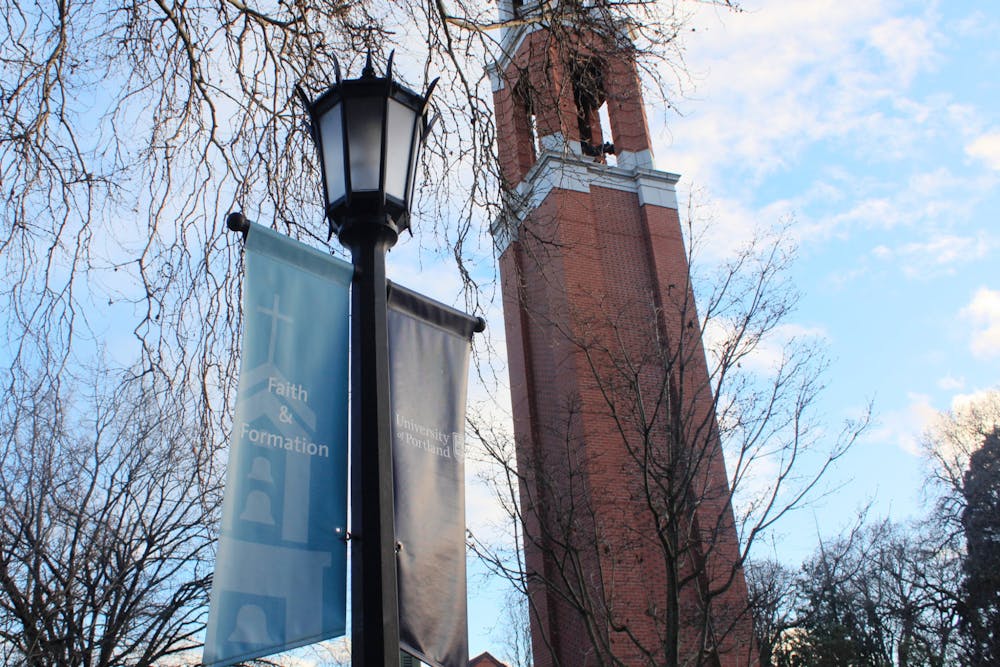As a member of the Holy Cross Congregation, theology is a vital part of UP’s identity. It serves as the basis for many central tenets, including its liberal arts educational model and the school’s core curriculum.
But, beginning next fall, UP’s theology department will look different as it undergoes a series of changes, including altered core requirements for students, an updated department name and expanded course offerings for theology majors and minors.
According to Associate Professor of Theology and Interim Chair for the Theology and Religious Studies Department David Turnbloom, the changes were inspired by the department faculty's desire to improve students' experiences and offer a more diverse education in the subject.
Altered requirements for theology core classes
Starting next academic year, THE 205: Biblical Texts in Global Context will no longer be required to fulfill students’ core theology requirements. While THE 105 will stay mandatory, students will now be able to pick from a variety of upper-division courses to fulfill their second theology requirement.
These classes include THE 362: Queer Theologies, and THE 336: Rituals, Worship and Ethics, which will be taught by existing faculty. Specialized adjunct professors will be hired to teach additional upper-division courses.
This requirement change will apply to all current and incoming students. Those who have already taken THE 205 will not have to take an upper division class, as their theology requirement will still be fulfilled.
According to Turnbloom, this change was made to allow students more autonomy over their UP education and provide students with the opportunity to take classes that align with their faith traditions.
Jon Stanfill, an instructor of theology at UP, believes the change will also benefit professors because they have one less class to teach, allowing them to focus on their own specialties within the department.
“It [THE 205 requirement] is a limiting factor,” Stanfill said. “If we're just teaching 105 and just teaching 205 and having a smaller smattering of explorations, then we're not really teaching our specialties, and I think that's where we as a department can really shine.”
Updated department name
Turnbloom emphasized that the name change does not mean a shift in department operations. Instead, it is meant to accurately reflect what the department actively looks like.
“We've [the department’s faculty] always been using religious studies discipline in our courses and in our scholarship as a department,” Turnbloom said. “So it's not so much that we're shifting from one to the other, but being better about seeing us as including both of those.”
Ultimately, according to Turnbloom, the department's goal is to utilize theological and religious studies perspectives when approaching a subject, in class and outside the classroom, and to prepare students to encounter different faith traditions in their professional careers.
Stanfill believes that having religious studies courses will aid the department in achieving this goal.
“I think that [religious studies] helps us equip and prepare our students to be better global citizens,” Stanfill said. “The more we can prepare our students to think beyond single perspectives, to have more diverse views and have more empathy for people who have different views and beliefs than their own, the better off they will be.”
Expanded course offerings for theology majors and minors
This shift also means that theology majors and minors will now have the opportunity to pick preselected courses from other departments toward their major or minor requirements. Some of the classes available for students include PHL 331: Asian Philosophies and ENG 337: Modern/Contemporary Arabic Literature.
These interdisciplinary courses were selected by the department based on how they teach students to understand the faiths and worldviews of other people and the role that faith plays in their life, according to Turnbloom.
Similar to the changes to the core, the new major and minor requirements will allow students to have more freedom in deciding what their education will look like, according to Turnbloom.
“We're changing it [the major and minor] in a way where there's going to be more courses that students can choose from, less of a structure to what's required in the major/minor and allowing for more student choice over what classes they want to have count towards their minor or their major,” Turnbloom said.
For Daiana Diaz, a second-year theology and philosophy double major, the introduction of new classes is an exciting prospect that she believes will help her explore more of her interests.
“I think it'll definitely help widen my perspective on religion because as much as I have the curiosity to learn about different religious cultures, if the school doesn't have that [more classes], it makes it a lot more difficult to learn.”
For additional information on these changes, the theology and religious studies department is hosting an informational session on Feb. 25 at 6 p.m. in the Terrace Room inside of Commons.
Editors Note: A previous version of this article incorrectly stated that THE 362: Queer Theologies, and THE 336: Rituals, Worship and Ethics would be taught by specialized adjuncts. These classes will be taught by existing faculty.
Samantha Zavala is a reporter for The Beacon. She can be reached at zavala27@up.edu








